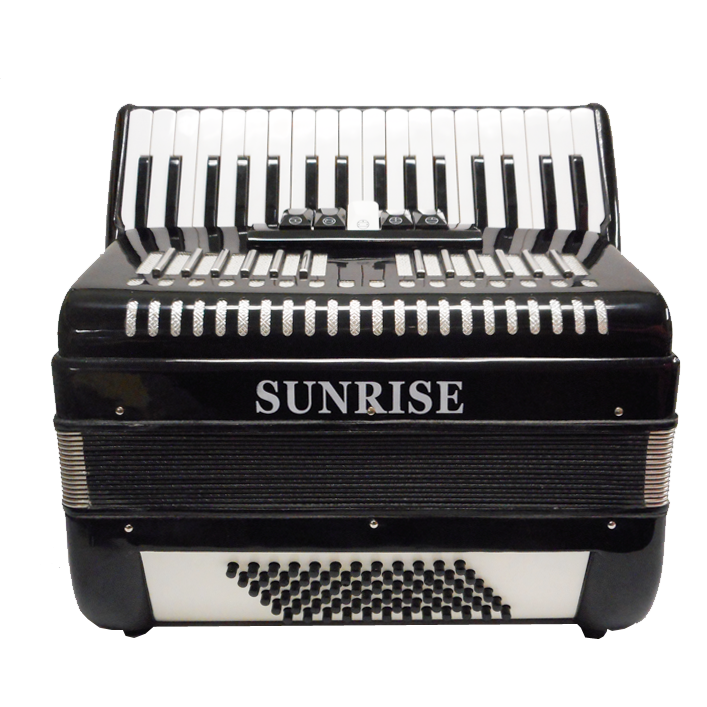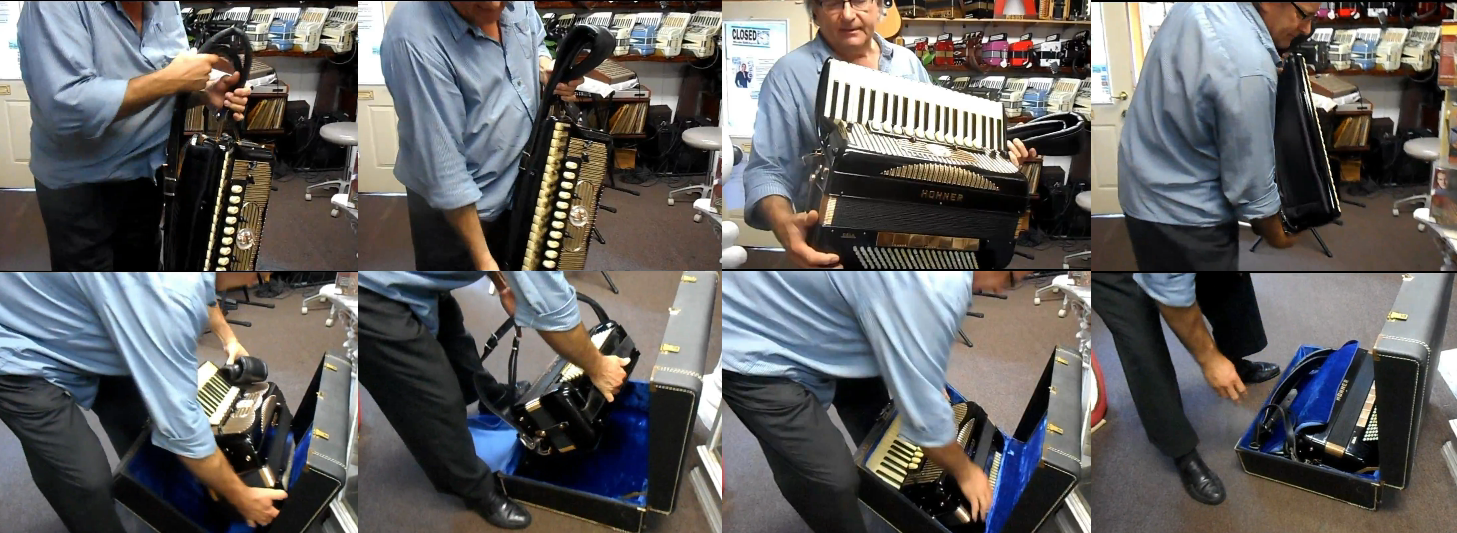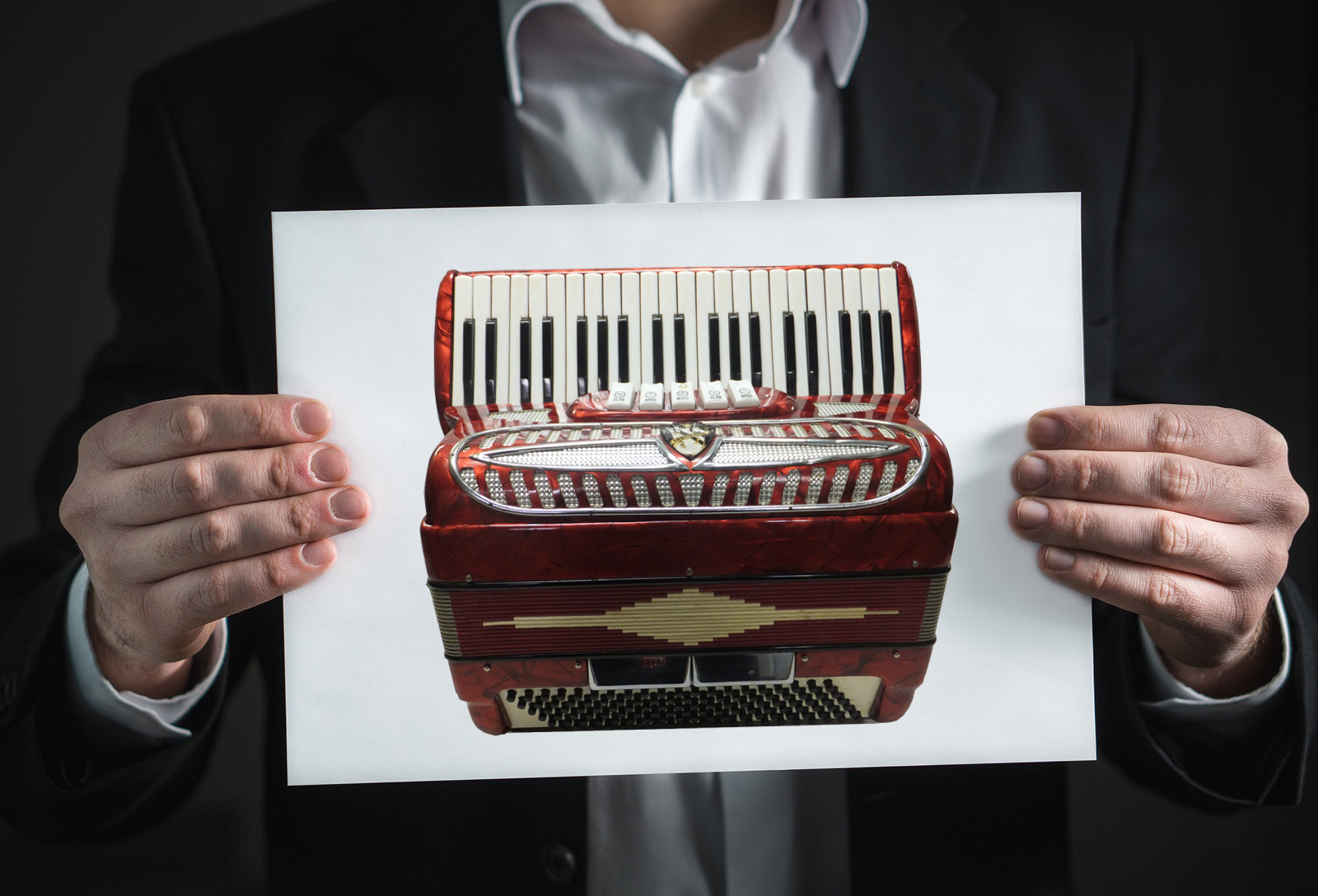by mahlermusiccenter
Share
by mahlermusiccenter
Share

Buying your first accordion is a tough decision. There are all kinds of brands, models, colors, sizes, and special features to choose from. It’s easy to become overwhelmed with all the choices if you don’t have a good advisor asking you the right questions. Buying an accordion should be considered an investment, as well as, a commitment to learning how to play the instrument. A good advisor will ask questions about your skill level, type of music you want to play, music reading ability and more.
Before you buy, do your research. Just because you find a cheaper accordion online, doesn’t necessarily mean its a good deal. I highly recommend that you visit an accordion shop in your area to discover what might be a good fit for your needs. Here are my top 10 things to consider before buying your first accordion.
1. Type
There are several types. Piano (illustrated above), Diatonic, Chromatic, and Concertina.
Each has their own unique sounds and features, the piano is more popular with jazz, rock, country and a variety of other music. The chromatic is similar but unique to certain cultures–just depends on your style, and the concertina is somewhat limited–but might be easier, because music can be played with numbers. It’s all about the skill and imagination.
2. Size
When starting out, I recommend a lighter accordion. The instrument should be as comfortable to play and practice. In time, you’ll be advancing to a larger instrument and the weight won’t be an issue.
3. Price
Stay as low as possible since you’ll eventually be trading this accordion for the one you really want. Your advancement will help you justify spending more money later. Yes, some people do buy the perfect accordion first, but this occurs when they have the knowledge to make a buying decision or they rely heavily on their trusted advisor.
4. Accordion Age
This is very important! I typically do not buy/trade accordions built before 1958 (some exceptions may apply depending on the instrument), because of the condition and problems that might arise. If no guidance is available, be sure to look for accordions with a white keyboard (no yellowing). This will put the accordion in the 1960’s or newer.
5. Tuning
This is crucial for children. I have witnessed first-hand, that if the child starts playing before the age of five, that child will in most cases, develop perfect pitch 100% of the time. I’ve had several students start at this age that has achieved perfect pitch. This theory has also been confirmed with other music instructors, so make sure the accordion is tuned properly.
6. Appearance
Color, design and all other attributes are really based on personal preference.
7. Compression
Bear in mind that there will always be a little air in the chamber, but the accordion should not leak excessively.
8. Reeds
Accordions have one, two, three or four reeds. Keep in mind, the number of reeds determines the weight and increased value of the accordion. I suggest a two reed accordion to start.
9. Condition
Think twice about buying an accordion with a strong mildew smell. Once the instrument acquires the odor, believe me, it can take many years of tender loving care and major expense to restore if at all.
10. Performance
Lastly, play the instrument and get a feel for it. You’re going to be spending a lot of time with it, and you’ll want to make sure it’s a good fit for you.
Remember, if playing the instrument before you buy is not an option, be sure to consult with a reputable advisor or retailer. Mahler Music Center is a recognized retailer and I’ve been in business for 30 years. I, Ken Mahler, owner/operator, am a recognized instructor, repair technician, and an appraiser in the industry.
STAY IN THE LOOP
Subscribe to our free newsletter.
Every accordionist needs to know how to avoid accordion mayhem, because their livelihood and reputation depend on it. Our story (a bit overstated) is intended to remind all musicians of the value of accordion best practices. It’s a Thursday night, one week before a big festival in Minneapolis, MN. While performing at a local pub, […]
Would you know what to do if you were to drop your accordion? Believe it or not, it happens more than you think. Just this morning, a young lady walked into the store with her accordion. As she is pulling it out of her soft-shell gig bag, she proceeds to tell us that one of […]
How to properly place your accordion in a case is one of the first lessons in caring for your accordion. Over the past 30 years, I’ve witnessed more mishaps from the improper placement of accordions in cases. Or worst, no case at all. Every once in a while, I’ll catch a student or professional wearing […]
You’ve just acquired a squeezebox and now you need to how much your accordion is worth. In our business, we get hundreds of calls a month from people who have either inherited an accordion from a relative or bought an accordion at a flea market, online deal or garage sale. Just the other day, a woman […]





